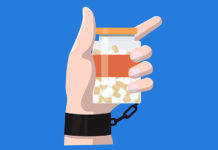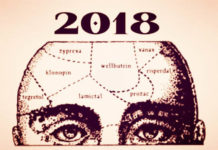Martin Luther King Jr. and the Psychiatric Violence Survivor Movement
My question to the mental health reform movement, the mad movement, the critical psychiatry movement — whatever we call our movement — is: Will we join the movement to make real change, to get to the heart of human freedom and work to fulfill the promise of democracy against control by monied elites?
Better Outcomes Off Medication for Those Recovered from First-Episode Schizophrenia
A new study has found that of 10 people who were fully recovered from their first episode of schizophrenia (FES), those not taking antipsychotics did better in terms of cognitive, social, and role functioning—and reached full recovery more quickly.
Fake Science and Checking Sources
The field of psychiatry is awash with systematic reviews, meta-analyses and other published articles proclaiming various discoveries. But can this research be trusted? Let's examine one such article, "Suicide prevention strategies revisited: 10-year-old review," in which the author claims that the "anti-suicidal effects of clozapine and lithium have been substantiated."
Antidepressant Withdrawal: An Unknown Disorder?
Antidepressant withdrawal is no longer an unknown disorder since knowledge on this topic has grown enough to be translated into practice. As proposed by George Engel in 1977, medical doctors, including psychiatrists, can observe and listen to their patients and develop a program to treat withdrawal and restore health.
The Never Ending Story: How 2nd Story Respite House Was Saved
We had built relationships with provider and peer organizations and NAMI. We had learned how to interface with the system and share the peer perspective. Ultimately, our relationships saved us. We had worked to start our own organization with the same providers who now were in position to step forward in our defense.
Psychologists Advise How to Help and Minimize Harm Working With Migrants and Refugees
While well intentioned, providers and volunteers can do more harm than good at the border. The Global Psychosocial Network issues guidelines on how to work for the benefit of migrants and refugees.
Study Identifies Psychiatric Patients at Greatest Risk of Coercion
In an effort to reduce coercion, researchers isolate associated factors including age, relationship status, location, and diagnosis.
When the Hospital is Sick
At my job as an inpatient mental health counselor, I had to confront the reality of a hospitalization system with serious and devastating flaws. I felt immensely powerless and understood how my coworkers could end up so negligent, numb, and at times abusive. And I understood how patients could become violent or self-injurious after years in these dismal hospitals.
Flexible Treatment Planning Improves Depression Outcomes in Youth
Researchers explore the effects of augmented treatment at various points in interpersonal psychotherapy for adolescents diagnosed with depression, highlighting previously unidentified critical decision points (i.e., relatively early in the treatment sequence).
Prenatal Valproate Exposure Linked with ADHD Diagnosis in Children
Children who were exposed to anti-seizure drug valproate in utero were 48% more likely to develop ADHD, according to a new study.
Open Dialogue: Does the Current Research Data Support Further Investment?
A leading US journal published an extensive literature review and analysis of currently available research on Open Dialogue. An accompanying commentary concludes, “The present data on Open Dialogue are insufficient to warrant calls for further research on the program other than those projects that are currently under way.”
Suicide, Ketamine, the Propaganda Model and the New York Times
A lengthy NYT op-ed had offered what I considered to be a fairly insane solution: “an old anesthetic called ketamine that, at low doses, can halt suicidal thoughts almost immediately.” Despite recognizing how much power the psychiatric-pharmaceutical industrial complex has over the NYT, I submitted my own op-ed in response.
Ten Hospitalizations in Three Years
When the psychiatrist prescribed me Zoloft, he did not warn me that it could cause a manic episode. So my second hospitalization was a disaster. A mental hospital is like a deranged dystopian high school. The upstairs was chaotic, dangerous, and violent. Sometimes people were yelling and throwing things. But these weren’t the most harmful moments.
Can Cultural Engagement Protect Against Depression?
A new study examines the preventative effects of cultural engagement has on depression among older adults.
The Good, the Bad, and the Ugly: An Infographic on Bipolar Drugs
Bipolar drug therapy is a balancing act of benefits vs. harms. Odds of attributable benefit cluster in a 15-25% band, so 75%-85% don’t see substantial benefit. Stated differently, if five people take a bipolar drug, only one is likely to see substantial improvement due to it, but all five will have side effects.
Individuals with Psychosis Symptoms More Likely to be Victimized
Individuals diagnosed with a psychotic disorder are 4-6 times more likely than the general population to experience victimization.
More Research Needed on Climate Change-Related Ecological Grief
Researchers outline the concept of ecologically driven grief due to climate change and recommend future research to better understand the psychological impact of climate change.
How Love Can Reformat Our Lives
I say this about myself and everyone I have known in my life and work: No matter how overwhelmed and desperate we feel, recovery and growth depend on becoming open to loving and being loved, and seeming miracles occur when individuals change their life in recognition of these truths. Love wipes the slate clean.
What is Contributory Injustice in Psychiatry?
An article on contributory injustice describes the clinical and ethical imperative that clinicians listen to service users experiences.
Philosophers Challenge Psychiatry and its Search for Mechanisms of Disorder
Attempting to locate the mechanisms of psychiatric disorder is a step in the wrong direction and fails to challenge potentially unjust social practices.
Mad in America: 2018 by the Numbers
As 2019 begins, we at Mad in America are looking forward to continuing to broaden our efforts to provide informational and educational resources that will help our society "rethink psychiatry." The start of the New Year also provides us with an opportunity to look back and tally up our efforts in 2018.
How to Promote Community Inclusion in Mental Health Practice
Practitioners and public leaders identify methods and barriers for integrating those diagnosed with mental health issues into community life.
The Monster in Our House: What Psychiatric Medication Did to My Father
When we eliminated his last psychotropic prescription, it was as if my father came back from the dead. All of the monster-like qualities that we thought were severe symptoms of his dementia have practically disappeared. We’ve found ourselves questioning whether he has dementia at all.
Researchers Push Back Against Recommendation to Combine Antidepressants for Suicide Prevention
Researchers challenge the recommendation of starting two antidepressants simultaneously to increase preventative effects against suicide.
The Mystery of Madness Throughout the Ages
The roots of modern psychiatry go back to the Age of Enlightenment when madness was reduced by scientists to an ‘object’ of mind — an object which could be studied, analysed, and as some of them claim, even understood. Not only does psychiatry deprive madness of its mystery, it also makes it extremely boring. But madness is never boring, and shouldn't be.

































